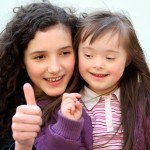
For many years, psychiatry has highlighted that people with epilepsy appear to have an elevated risk for psychosis. However, studies exploring this relationship (of which there are many) seem to disagree on just what the prevalence of psychosis is in this group. For example, Gudmundsson (1966) interviewed every patient with epilepsy in Iceland and concluded [read the full story…]








